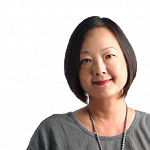So, what are we in, the year of the sheep or goat?
While better minds parse the etymology, I can tell you my brother was born a "yang" and he's no meek lamb, for sure.
Whatever the conclusion, it seems apt that we've ushered in the year of an identity-challenged zodiac animal or, if you prefer, an all-encompassing critter, given how some recent events have turned tragically on the idea that the way we see ourselves may be radically opposed to how someone else sees us.
Nearly two weeks ago, three young Muslims of Syrian descent were gunned down in Chapel Hill by a vengeful neighbour for as-yet-unestablished reasons.
The suspect, Carl Hicks, 46, a white man, was by all accounts an angry and bitter person. His cache of lethal firearms spoke of a warped frame of mind, as did his obsession with parking places in the apartment complex where he and two of his victims lived.
But he was also an avowed atheist who had professed contempt for religions online.
Whether Hicks was a mentally unstable individual who unfortunately had access to guns (a far too familiar narrative in the United States) or whether he had committed the crime out of hatred for Muslims - or a combination of both - may or may not be something that is ever determined by the courts.
But, according to a Muslim friend here in Chapel Hill, there was no doubt among the Muslim community that it was a crime committed out of "Islamophobia", that is, the prejudice and fear of Islam and anyone perceived to be Muslim.
"It sends the message that it doesn't matter what you do or don't do; as long as you look or dress a particular way and attend certain religious institutions, you'll be a target," he said.
It would certainly reinforce the fears of immigrant parents and strengthen their opposition to their children participating in any political or civic life, he said.
America is often called a melting pot, but I think of it more as yu sheng, with all the different ingredients in separate piles on the same plate. Until someone comes along and tosses them altogether.
As a college town abutting the Research Triangle Park, Chapel Hill is a welcoming place to anyone from anywhere.
Yet it is my experience that the different groups within it don't really mix so much as co-exist. Which is a pity because tolerance can extend only so far, and when push comes to shove, cracks can appear.
That they did in the middle of last month, in a debacle at nearby Duke University when a plan by university officials to allow the weekly Friday call to prayer be made from atop Duke chapel was scuttled after it came under intense fire from conservative Christians.
We fear what we don't know and though there are an estimated six to seven million Muslims in America, I have long noticed that as a group, they are hardly visible in the towns and cities I have been.
Perhaps that was why amid the outpouring of sympathy and outrage over the murders, there was also dislike, misunderstanding and doubt about what Islam signifies.
A young woman wearing a headscarf recounted to a local newspaper how she was waiting at a bus stop, days after the shootings, when a woman driving by honked her horn and flashed her a vulgar sign.
Immediately, the woman waiting next to her turned and said: "I'm sorry."
I have wondered if this tension between hostility and deference would even exist in Singapore, where space has been deliberately carved out to allow the major religions the room to practise. We are so used to the sights and sounds of different faiths that I am amazed when I do not see them now where I am.
I was always struck, whenever we were with friends, how diverse the group would be, not just in race, but also nationality. That defining characteristic of our social life was not manufactured but an organic consequence of Singapore's liberal immigration policy.
I would hate to think that the winds have shifted in the opposite direction.
In my experience, the divisions in Singapore were not over race and religion so much as over language, education and socio-economic status. I had more in common with my university-schooled non-Chinese friends than with my own Mandarin-speaking relatives.
At least, that's what I swore for years, from the torpor of my comfort zone. It has mainly been in the last few years, during visits back, that I have found myself reconnecting with relatives I had always smugly assumed I shared little with beyond the accident of birth.
Not only I, but my children as well.
The thing is, you can find common ground with just about anybody if you tried to.
So I wish anyone who had an ounce of "Islamophobia" had been at the vigil for the murder victims at the University of Chapel Hill the night after they died. They would have heard no mention of hate, politics or vengeance, but words of love for the young people who died, a desire to honour them by continuing their good work, and gratitude to friends and strangers. They would have witnessed expressions of faith that all that pain and grief would be transformed into something positive.
Something such as greater understanding of different cultures, the defeat of ignorance and the knowledge that being of a different race or religion doesn't make anyone less of an American or a Singaporean.
It doesn't bring Deah Barakat, Yusor Abu-Salha and Razan Abu-Salha back, but their deaths have started a conversation that hopefully will take us all forward.
At least for a while.


